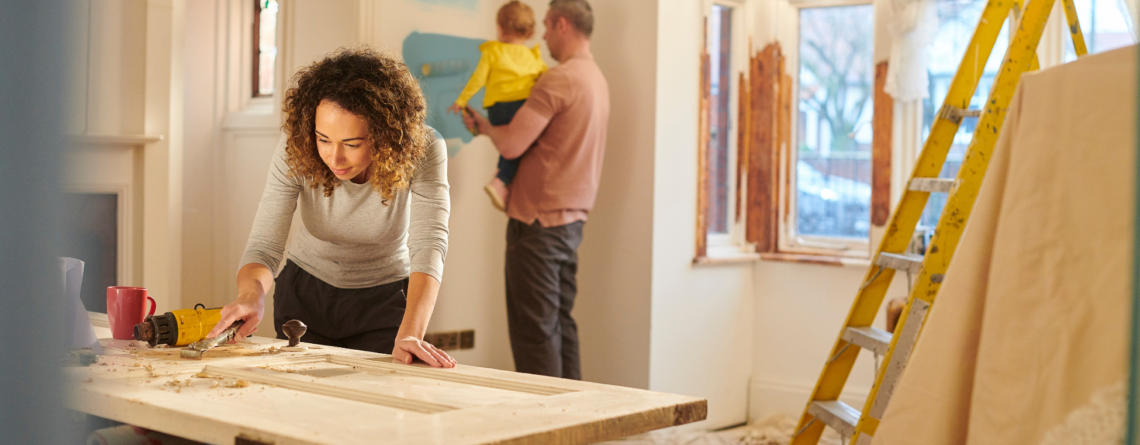Should a First-Time Homebuyer Choose a Fixer Upper?
If you’re a first-time homebuyer trying to stretch your limited budget to get as much house as possible, you may be tempted to buy a fixer upper, a house in need of extensive repairs. They certainly can be priced right.
If you’re like me and your construction skills are taxed when hanging a picture, I’d avoid buying a fixer upper. But for those of you who with a handyman’s touch, a fixer upper might be a great way to go.
Some obvious benefits of buying a fixer upper include the properties’ lower price and the fact that you don’t have to compete with as many buyers. Most people looking for a house want one in move-in condition with new paint, flooring, appliances, and other amenities. The idea of buying a home and immediately beginning renovations only appeals to a certain segment of homebuyers.
When it comes to financing, fixer uppers can go both ways. It can be difficult to get a mortgage because some lenders only provide funding on a property’s current value, not on its expected value after renovations are done. While you may feel confident in your ability to rewire and re-plumb the house, lenders may note that you are a bookkeeper by trade and feel a little less optimistic about your construction abilities.
On the other hand, some loans are tailor made for fixer uppers. They’re called renovation loans and the great thing about them is that you can finance the purchase of a house and the cost of renovations over the 30-year term of the loan. This certainly better than getting a short-term, higher-rate second mortgage due in five years to finance the renovations.
Renovation Loans
The FHA 203(k) loan allows prospective buyers to purchase a home with a small down payment of only 3 percent and then provides financing for the cost of some of the renovations. It does require cash reserves and construction bids, as well as strict limitations as to who can do the work (only those with contractor’s licenses as opposed to you and your brother-in-law who happens to be your partner at the bookkeeping business).
The Veterans Administration (VA) has a similar program, which also requires licensed contractors to do the work. FNMA (referred to as “Fannie Mae”) has a renovation loan program called Homestyle that requires a slightly higher credit rating than the FHA or VA loans, but you can use the financing for almost any home improvement project, even pools and landscaping.
FHLMC’s (referred to as “Freddie Mac”) fixer upper loan program is called CHOICE Renovation and it is designed primarily to improve homes so they can withstand natural disasters. If your fixer upper requires new siding and you want to install Hardie Board fire-resistant siding, for example, this could be a great loan for you. As a bonus, you can do the work yourself (no contractors required).
Basically, you’ll either need the skills to do the work or know someone who has them, and for most loans you’ll need someone with a contractor’s license willing to work with you. Some contractors allow homeowners to work side-by-side as laborers to save the homeowner money.
If the house is in such poor repair that you’ll need to live elsewhere for a while, don’t forget to factor that into your budgeting. And remember, there are only two guarantees with fixer uppers: 1. They will take longer than they should, and 2. They will cost more than you planned. However, doing the work yourself can save money and provide a wonderful sense of accomplishment as well putting your personal touches in your new home.
If you have questions about getting into real estate, please contact me at rselzer@selzerrealty.com or call (707) 462-4000. If you have an idea for a future column, share it with me and if I use it, I’ll send you a $25 gift certificate to Schat’s Bakery. Dick Selzer is a real estate broker who has been in the business for more than 40 years.






